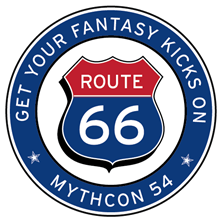Publication Ethics Statement
Mythlore Statement on Publication Ethics and Malpractice
The authors, journal editors, peer reviewers, and publisher of Mythlore will be guided in their mutual work by the standards developed by "The Committee on Publication Ethics (COPE), which provides resources on the topic of professional publishing standards at publicationethics.org.
1. Authorship, Contributorship, and AI Policy:
When submitting a work (article, note, letter, review, or other work) to Mythlore, the author or authors warrant that this is their original work, and that any substantial contributors to the paper are listed as co-authors. For multiply-authored papers, co-authors are expected to work out order of authorship amongst themselves. All authors and their email addresses should be provided to the editors, although one author may be designated as the primary contact during the editing process. Others who have contributed in a less substantial role, such as advisors, readers, referees, or commenters, may be acknowledged if desired in footnotes or acknowledgment statements. Your work must properly cite and quote the work of others, in accordance with the directions in our Style Sheet. Mythlore will not accept work written or illustrated in any part by generative AI and Large Language Models (LLMs), and they cannot be credited as authors. Authors must disclose any use of GenAI or LLMs as tools in their work in their cover letter, and in any methods section that might be included in their paper. The editor will determine if additional acknowledgment is needed in the text of the paper or elsewhere. AI tools that make suggestions to enhance original work, such as tools to improve word choice, grammar, or sentence structure on a small scale, are considered assistive AI tools, and do not need to be disclosed in cover letters. The detection of AI “hallucinated” quotations or items in the works cited list will be grounds for rejection; see section 4 below on Data Sharing and Responsibility. The creator of any submitted content is ultimately responsible if there is any legal challenge to its publication.
2. Complaints and Appeals:
Complaints and appeals may be addressed to the editor in chief. If warranted, these complaints will be discussed with the journal’s editorial board and/or with the Society’s Council of Stewards. Guidance may be sought from the flowcharts, guidelines, and cases archived at The Committee on Publication Ethics (COPE) site or through the discussion boards at the Council of Editors of Learned Journals as appropriate.
3. Conflicts of Interest:
Authors should declare any potential conflicts of interest or competing interests relevant to their submission. For members of the Mythlore board and editorial staff and the Mythopoeic Society Council of Stewards, we require two favorable double-anonymized peer reviews for publication of an article (notes, letters, and reviews are excepted).
4. Data Sharing and Reproducibility:
Mythlore is multidisciplinary but primarily publishes literary criticism, so we are very unlikely to ever need to share data to ensure the reproducibility of results. However, we consider accurate and fair quotation of sources to be the philosophical equivalent of this ethical requirement. To that end we expect authors to quote accurately without misrepresenting the original intent of their sources, and the editorial staff makes every effort to check every single word of quoted material for accuracy and context.
5. Ethical Oversight:
In the event that a submitted article involves research with human subjects (for example, surveys or interviews), these studies should have been approved through appropriate ethics or research approval boards at the author(s)’ institution, and such approval footnoted within the article.
6. Intellectual Property:
The copyright for each individual item belongs to the author or authors under a Creative Commons CC BY-NC-ND license. Under Rights for Authors and SWOSU Digital Commons and on our submission form, we spell out what Mythlore may do with the item, which includes publishing the item in print and electronic format and providing the text to commercial databases for inclusion and indexing. If any third party requests reprint rights from the editor, they will be referred to the author or authors.
7. Post-publication Discussions and Corrections.
Informal discussions may take place on the Society’s various social media pages and are monitored for adherence to our code of conduct. More formally, discussion may take place in the journal itself in the form of Letters or Notes, which are overseen by the editor in chief.
In the exceedingly unlikely event that formal corrections need to be made, these will be acknowledged in the opening Editorial of the next published issue of the journal and a note will be attached to the article in our repository. These may consist of correction notices, addressing minor errors such as spelling or citation corrections; retraction notices for major issues that cannot be addressed by a correction; and removal notices, for substantial issues such as gross copyright infringement. In all cases the editors and board will be advised by COPE’s guidelines.


